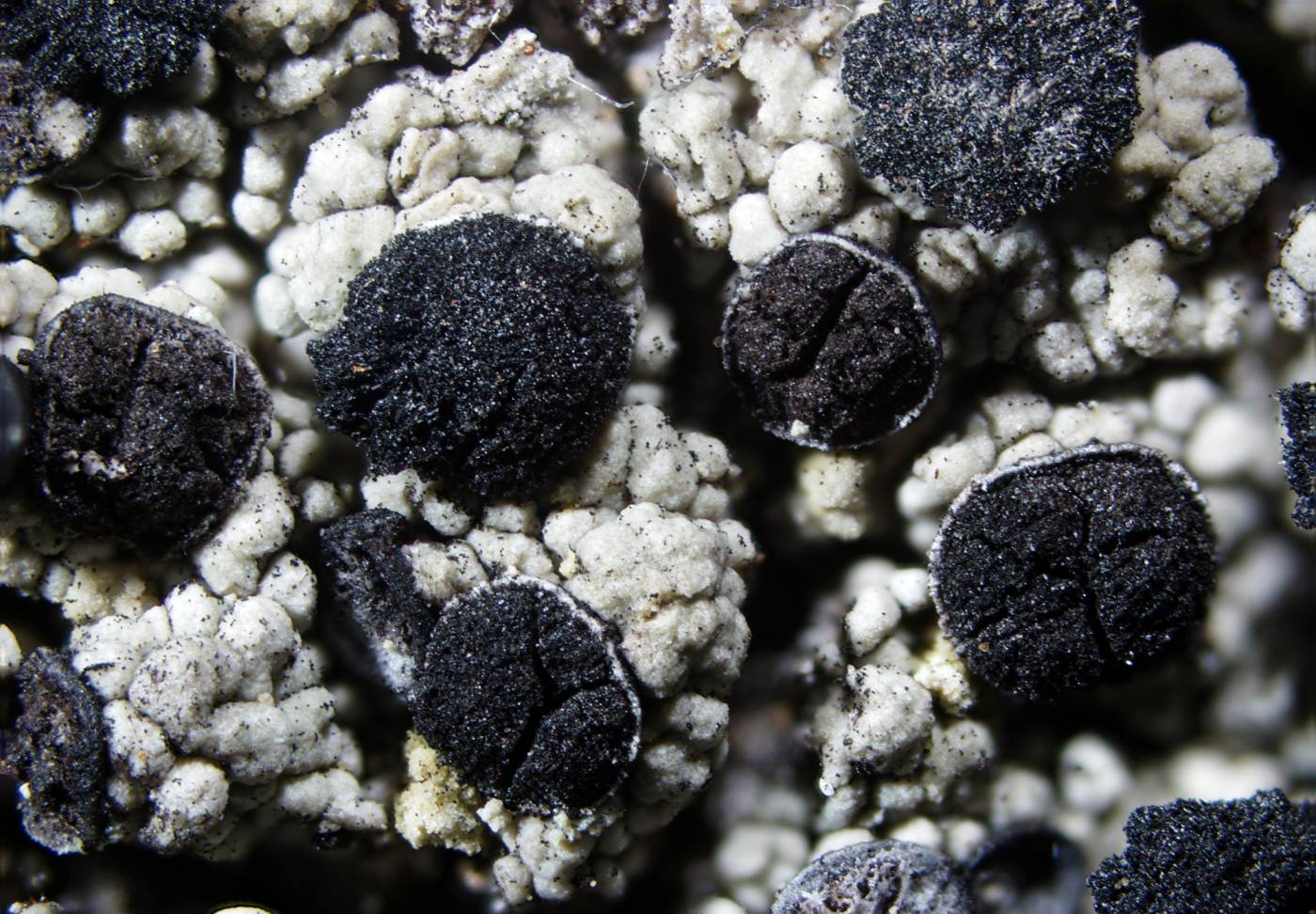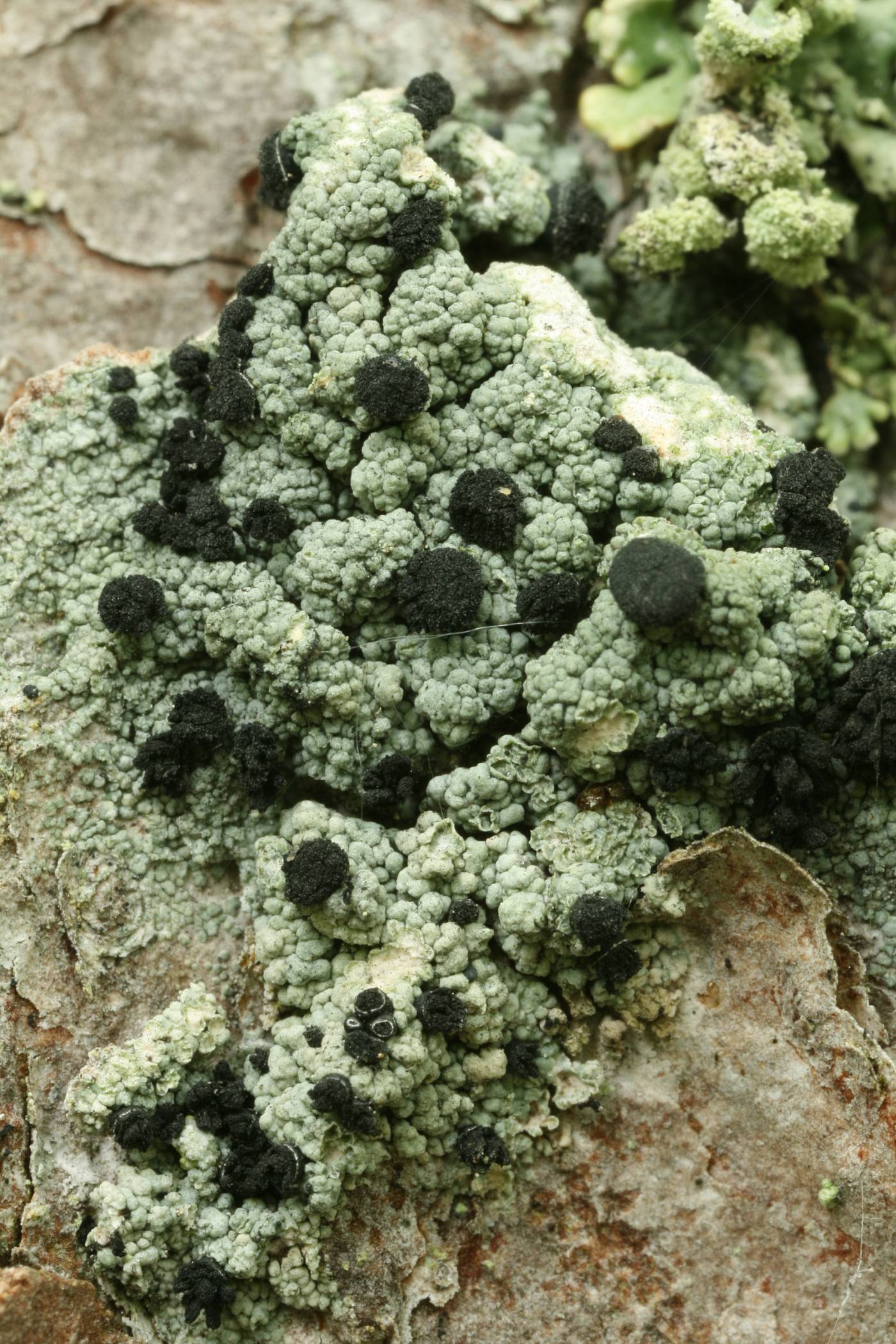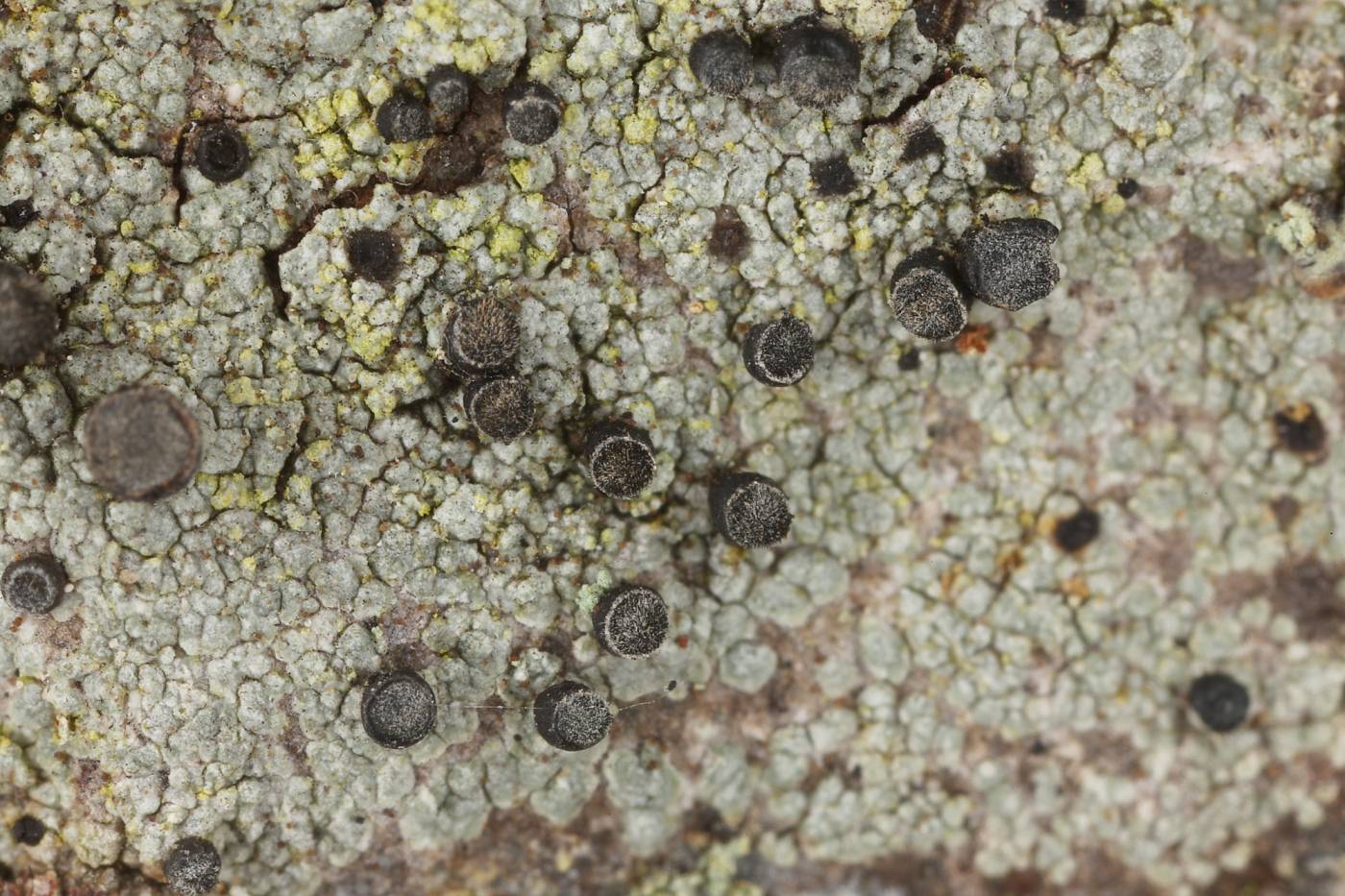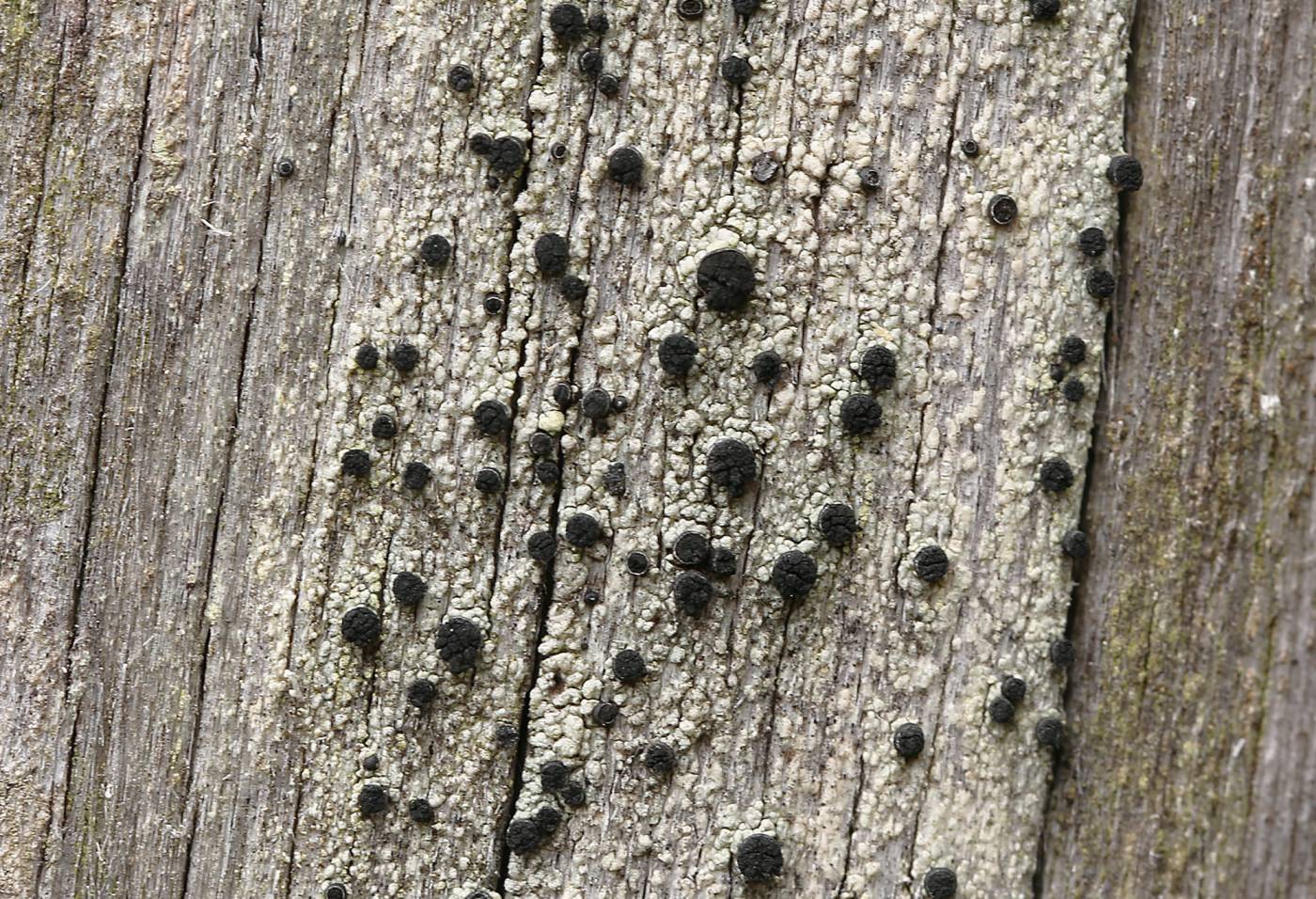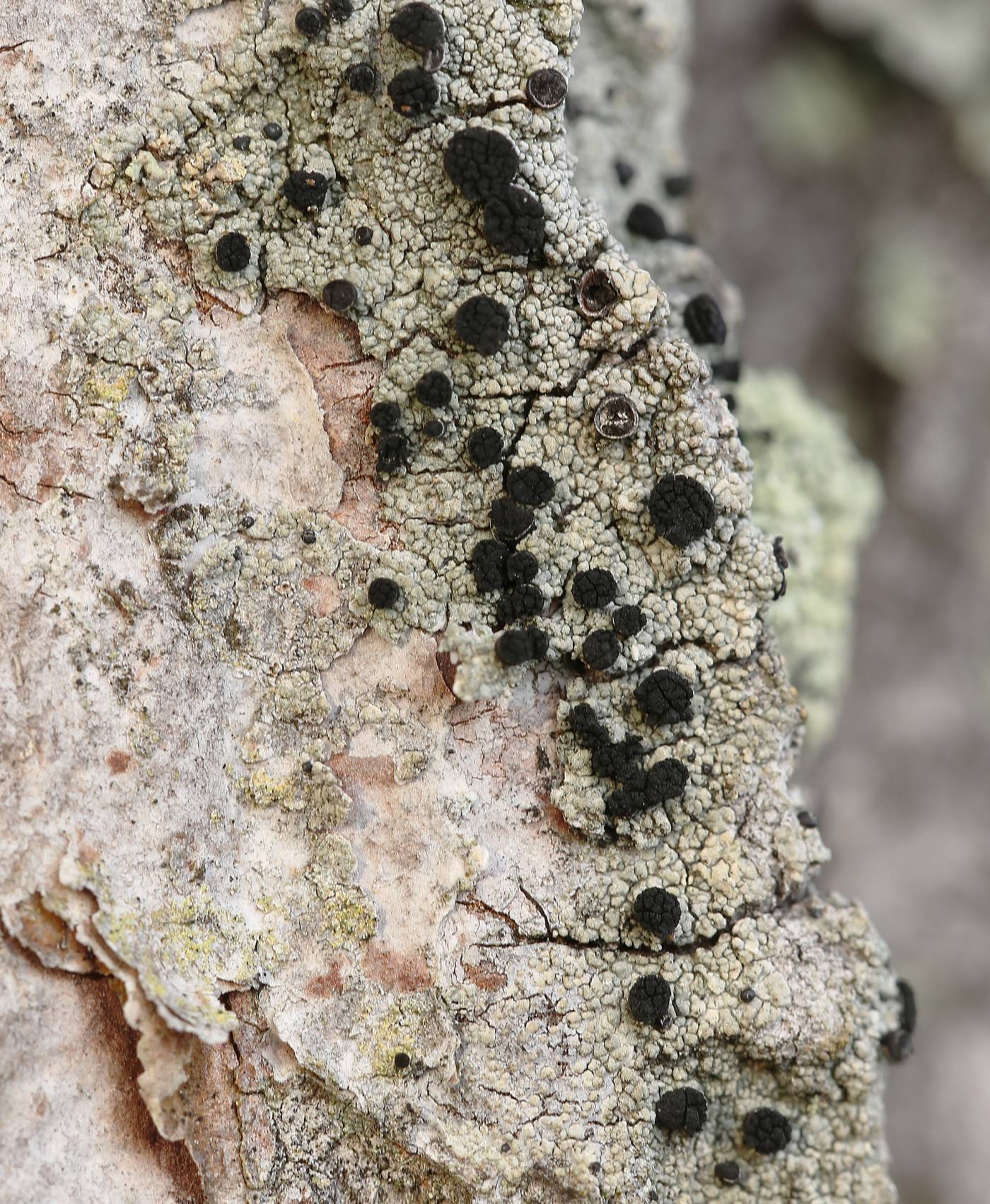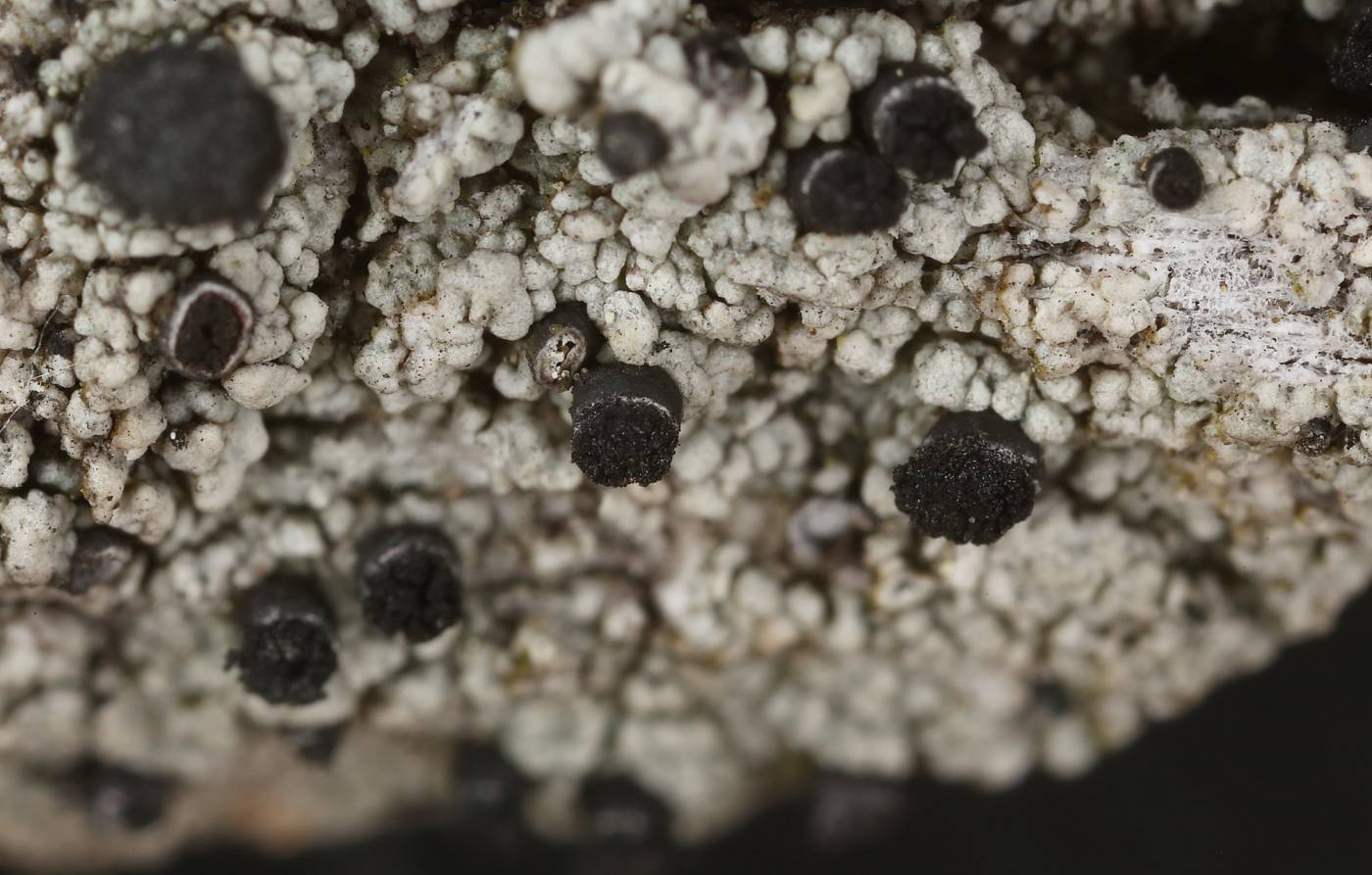A microlichen characteristic for older moist old-growth forests. It usually grows on dry bark and wood of old dying coniferous trees (fir, spruce) or their snags. Less often it occurs on rain-protected trunks of older deciduous trees, such as beech, or on trees with deeply furrowed thick bark, such as Ulmus glabra. Outside the Czech Republic, e.g. in Scandinavia, it is also known from worked timber, for example, from fences. It meets its optimal conditions in mountain spruce and mixed forests with a high abundance of Abies alba, in scree woodlands, or in well- preserved valley forests. In the Czech Republic, it used to be scattered at intermediate and higher elevations. However, because of the close ecological link to specific types of phorophytes and microhabitats and due to its high sensitivity to changes in microclimatic conditions and air pollution, the species has declined. The most of recently found specimens comes from the Šumava Mts, and it rarely survives in fragments of natural forests in the eastern Sudetenland (the Orlické hory Mountains, Králický Sněžník, Hrubý Jeseník) and in the Český les Mts.
This species can exceptionally occur also on overhanging siliceous rocks (Tibell 1971). This form is represented by Calicium neesii, a lichen described from the locality Modrý kámen near Janské Lázně in the Krkonoše Mts (Flotow 1836). Tibell (1971) assigned it to the species Acolium inquinans, but the type locality was incorrectly interpreted as Bavarian (not Czech). The name Cyphelium neesii was also used by J. Suza for the taxon Calicium lecideinum.
Literature: Flotow J. (1836): Reisebericht über eine Exkursion nach einem Theile des südöstlichen Riesengebirges, unternommen von dem Präsidenten Nees von Esenbeck und dem Major von Flotow. – Flora (Regensburg), 19, Beibl. 1: 1–60. Tibell L. (1971): The genus Cyphelium in Europe. – Svensk Botanisk Tidskrift 65: 138–164.
taxonomic classification:Ascomycota → Lecanoromycetes → Caliciales → Caliciaceae → Acolium
most frequented synonyms:Cyphelium inquinansRed List (Liška & Palice 2010):CR – critically endangered
Red List (Malíček 2023):C3 – endangered
Occurrence in the Czech Republic
All records: 26, confirmed 24. One click on a selected square displays particular record(s), including their source(s).
